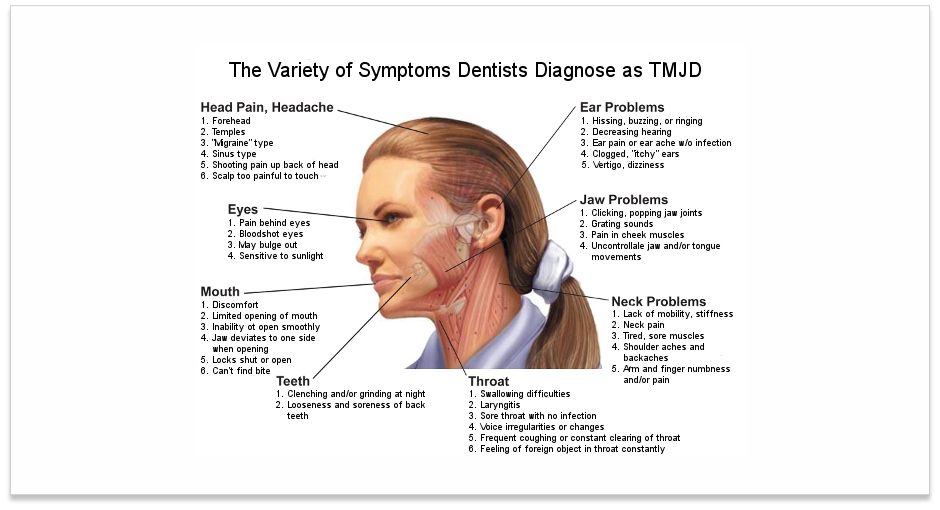TMJ--- the Temporo-mandibular Joint has become a catch all phrase for musculo-skeletal pain that causes pain on closing, or on opening.
Grinding
Clenching
Some possible causes are:
a) Malocclusion-- 'A Bad Bite'
when the upper and lower jaw meet on closing in such a way that they chronically cause the teeth to be traumatized, or the muscles to become inflamed and tender.
TMJ dysfunction may also be part of myofacial Pain Dysfunction, as well as other related health issues/
b) Stress: We manifest our stress by tensing certain muscles, by grinding and clenching our jaws, by doodling around one particular tooth, and even biting our lip.
When the TMJ gets inflamed and sore, home remedies might help.
However, there are a variety of appliances that can be worn at night that can prevent such symptoms in the first place.
Nightguards are Lab fabricated retainers that are fitted precisely to the mouth and ground to fit the bite. When they are worn they provide the muscles in the jaw an opportunity to relax.
Many patients suffer from Sleep Apnea which can be associated with anoxia or lack of oxygen to the brain. Severe apnea can leave a person drained and feeling poorly overall.
There is a plethora of appliance to help keep the jaw in a comfortable position that prevents the blocking of air pathways. Patients are encouraged to inquire with Dr. Goldenthal if they have any of the symptoms of Sleep Apnea
What are the symptoms of sleep apnea?
Common sleep apnea symptoms include:
Waking up with a very sore or dry throat
Loud snoring
Occasionally waking up with a choking or gasping sensation ...
read full answer on webmd.com
One of the most common signs of obstructive sleep apnea is loud and chronic (ongoing) snoring. Pauses may occur in the snoring. Choking or gasping may follow the ...
read full answer on nih.gov
... The most common signs and symptoms of obstructive and central sleep apneas include:
Excessive daytime sleepiness (hypersomnia)
Loud snoring

